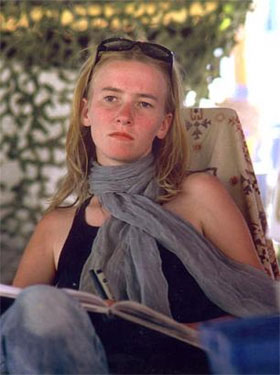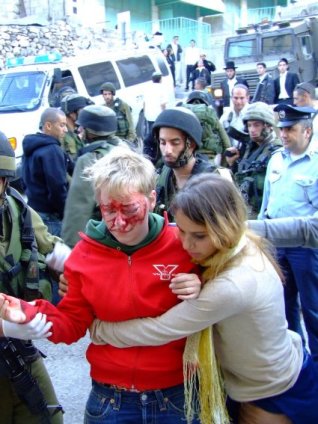In response to a blogger's criticism of a film I helped on a bit, Occupation 101
Sadly, I don’t have time to keep up with blogs as much as I should (not surprisingly, since I almost never even post to my own), but I recently discovered that a prominent blogger named Philip Weiss (whose work I have sometimes read and found valuable) had written some odd things about an excellent documentary I assisted on a bit, Occupation 101. In his blog Weiss describes attending a showing of Occupation 101 at Yale, after which I had been invited to lead a discussion.
I'm extremely proud to be associated with Occupation 101. The two young filmmakers who created it have produced a breathtakingly powerful film. The story of how they made their film is sort of like a Hollywood movie, if Hollywood ever made movies where Arabs weren't the villains. Sufyan and Abdallah Omeish, two brothers who had never made a documentary before and had basically no money, decided they were going to make a film about Palestine – and they're not even Palestinian.
They had little money and no connections, but they had a dream (see what I mean?) and somehow they scraped together the resources to go over to Palestine and film the occupation up close. And they went further; they gathered archival footage, filmed interviews all over the country on their small, low-budget equipment, delved through books and told the whole story – about early Zionist terrorism, the ethnic cleansing of 1947-49, the 1967 war, the treatment of Christians and Muslims in the Jewish state. They told about the vast amounts of US money to Israel, about the Israel lobby and Christian Zionism. They filmed interviews with analysts in Israel, Palestine, and throughout the US, and then edited all of this into a riveting explosion of information, emotion, facts, and feelings.
It took them years, as they worked to get each edit just the way they wanted it, each dissolve correct, the music perfect, the rhythm right. Their studio was a room in a small, cheap apartment in west LA. On occasion I would join them there, whenever they wanted outside feedback or were ready for some narration. Sometimes the recording would go well, but I'm far from a professional and eventually my mouth would get dry, or I'd stumble, or go too fast or too slow, but eventually it would be good enough and we'd go on. It was far from soundproof and sometimes we'd have to record during lulls in the construction going on outside.
After about five years, their film was basically done and they were about to release it, but then they discovered that some of the archival footage they thought they'd gotten pro-bono wasn't, and they suddenly had to raise more money. Then they discovered that they needed permissions from all the people they'd interviewed, and that took still more time and effort. And, of course, they kept tweaking it, coming up with new ideas, updating it to include the latest changes in events.
Finally, they let it go – and the reaction was electrifying. Los Angeles Journal called it "One of the best documentaries." Infocus raved, "A visual revolution is born."
Awards flowed in…
• Golden Palm Award, Beverly Hills Film Festival
• Best Editing, Beverly Hills Film Festival
• Best Film, Artivist Film Festival
• Audience choice Best Film, East Lansing Film Festival
• Best Feature, River's Edge Film Festival
• Best Documentary, Dead Center Film Festival
• Best Documentary, New Orleans HR Film Festival
• John Michaels Memorial Award, Big Muddy Film Festival…
Yet, here I am (I’ve just returned home from a small speaking tour), reading a commentary on the film by Philip Weiss -- whose blog entries position him as a Jewish, pro-Palestinian writer -- in which he calls Sufyan and Abdallah's film "propaganda" and alleges that the film "demonizes" Israelis. These are not only extremely destructive accusations that could seriously undermine distribution of the film, they are also quite false. The reality is that the film features many Israelis in various peace and anti-occupation organizations, who are quoted extensively. In fact, the majority of the interviewees are Israeli and/or Jewish.
While Israel partisans oppose the film, many people knowledgeable on Israel-Palestine consider it one of the best documentaries produced on the subject.
Former Princeton Professor Richard Falk, Albert G. Milbank Professor Emeritus of International Law at Princeton University and Visiting Distinguished Professor in Global and International Studies at the University of California, Santa Barbara who served on a 2001 three-person Human Rights Inquiry Commission for the Palestine Territories by the United Nations, called the film "a remarkable portrayal of the reality of the Palestinian ordeal."
Falk, who also happens to be Jewish, went on to say:
"What I was particularly struck by was that there was not a false note in the entire film, and I cannot imagine a better way for the people of this country to finally come to appreciate the reality that Palestinians have been enduring for decades now than to watch this film…"
Weiss’s blog entry also claims that there was "never a sign that Israel had fulfilled some Jews' dreams – no coins in that fountain," even though the film includes moving scenes of Jews flowing to Palestine to escape Nazi atrocities.
It is hard to imagine someone writing equivalent criticism of a similarly excellent film depicting oppression elsewhere…. For example, it occurs to me that I can't think of a single film about segregation in the south that contained anywhere near as many good southerners (even though these also existed) as Occupation 101 contains good Israelis.
The fact is, the film does not exaggerate conditions, or the history. The situation for Palestinians is that bad. In fact, it's worse. The reality is that some quotes from Israeli soldiers that have been reported in the Israeli media were not included in the film – they were too strong.
Perhaps it would be informative for Weiss and others to learn a little of what was left out of the film. One example is a quote from the Israeli publication Davar, which published an account by a soldier who participated in the 1948 massacre at the Palestinian village of Dueima. The soldier described the actions of his fellow soldiers:
" ... They killed between eighty to one hundred Arab men, women and children. To kill the children they [soldiers] fractured their heads with sticks. There was not one home without corpses. The men and women of the villages were pushed into houses without food or water. Then the saboteurs came to dynamite them. One commander ordered a soldier to bring two women into a building he was about to blow up ... Another soldier prided himself upon having raped an Arab woman before shooting her to death. Another Arab woman with her newborn baby was made to clean the place for a couple of days, and then they shot her and the baby. Educated and well-mannered commanders who were considered 'good guys'... became base murderers, and this not in the storm of battle, but as a method of expulsion and extermination. The fewer the Arabs who remain, the better."
There are a great many more of these grisly, firsthand accounts about numerous massacres throughout Israel’s history. If Occupation 101 were going to be made even longer than it already is, the need would probably be to include more on these, which almost no one knows about, rather than putting in more on the narrative about how Israel fulfilled “some Jews’ dreams,” which everyone has heard about, over and over again.
It is strange to read Weiss’s bashing of the film in the midst of a piece emphasizing the value of listening to the voices of young Arab-Americans. However, Weiss says that he arrived late, so it’s possible he didn’t see the credits and assumed I was responsible for it. Or perhaps he is simply not so enthusiastic about young Arab voices when they stray beyond the parameters he would set for them… which is disappointing in a writer who normally opposes efforts to keep discussion of Israel-Palestine only within limits set by Jewish/Israeli preferences.
Weiss then goes on to describe the discussion after the film. Here, also, I feel his description distorts the reality.
Following the film there was an extended question-and-answer session. While most people seemed moved by the film and asked questions about specific aspects, there were also challenging questions from people who were partisan toward Israel. The Q & A went on quite a long time, until finally the student organizer determined it was time to close the event. He stood up and said there would be one more question. There were still a great many hands up, and I randomly called on a student who had been waiting, like numerous others, to be called on. He asked whether there was hope that peace would ever be reached… I responded that I felt that when the US ended our massive aid to Israel, which prevented the Israeli government from believing it would ever have to compromise, the two populations would be able to find peace. I stated that there were visionaries on both sides who would be able to step forward when the US one-sided support of Israeli militarism got out of the way, and that Israelis and Palestinians would then find the way forward.
The event was then over. It had been a long night and the students needed to get home to study. Many of the foreign students, in particular, feel it is critical that they do well at Yale; otherwise, as one student told me, they won’t be able to stay. Suddenly, a man in the audience stood up and shouted out that he was an Israeli solider and that everything had been “lies.” There was considerable shouting back and forth, and when it finally quieted, I said to him that I fervently disagreed and asked him to name any inaccuracies. He apparently couldn’t, so he instead began to go into a long discourse of some sort; it was difficult to hear in all the commotion. This type of behavior is typical. I’ve rarely been to an event about Palestine in which some Israelis or Israel partisans have not demanded everyone’s attention and time far beyond that allotted to anyone else.
While this IDF soldier was trying to claim victim-hood for Israelis, yet again, the irony of the situation struck me. Here was a man who was an Israeli soldier – the one that you see at every checkpoint demanding ID’s from old women and young students; deciding who may pass and who may not; yelling at people who respond too slowly; flirting with female soldiers while people wait in line in the sun to be waved through; who point machine guns at crowds going to pray, work, school, and who bark orders at old, stumbling men; who smash rifle butts into nonviolent protestors; who regularly, as some soldiers have described the Israeli military’s actions, “starve, humiliate, and dominate an entire population” … here he was, a member of the Israeli occupying force, trying to demand the victim’s right to speak, even as real victims had been willing to forego their questions when time forced the event to end. It seemed to me that either all the students should be allowed to ask their questions without discrimination, including the many Palestinian and Arab students who rarely have a voice, or no one; and since the student organizer had called the event to an end, I ended it.
Weiss disapproved, feeling that I should have favored the IDF soldier with more time, despite the lateness of the hour and the fact that other students had equal right, at least, to speak.
He also wished I had brought "some nuance to the victimization narratives." It's interesting to ponder this, so often demanded by Jewish writers in regard to Israeli oppression and so rarely elsewhere. Perhaps if more Afrikaners had been living in the US, there would have been more demand that depiction of South African oppression be more "nuanced." As it was, I don't recall a lot of nuance on this subject, or a lot of concern at its absence. Perhaps it's not a coincidence that South African apartheid ended… while Israeli apartheid goes on and on and on.
By the way, after the event many of the Arab and international students seemed enormously excited about the evening, the film, and my role. I find this reaction frequently. I think they’re astonished to see a non-Arab, non-Muslim American who for once is not watering things down – who is actually describing honestly and fully what it’s like for Palestinians. (Of course, that shouldn’t be considered laudatory, it should be routine. Moreover, I should have looked into what my government was funding in Palestine at a far younger age.)
Weiss then writes that he wishes that I spoke “more transparently about [my] path to this work.” Yet, my talks largely focus on my path to this work, and I’ve often been interviewed about this on radio programs. In fact, there’s even a video on this by Alternate Focus, which has been shown on a number of public access television stations around the country and that is posted on Youtube. I’ve also included my story occasionally in my writings. Given my commitment to and history of openness on this subject, the accusation of a lack of transparency seems considerably off the mark and a bit weird, almost as though he’s suggesting some sort of sinister motivation but doesn’t say what.
Truthfully, if he had wished to know more about this, I wonder why he didn’t simply ask me. From his blog entry it appears that at some points he was standing quite close to me. It feels a little strange that he never came up and introduced himself, especially since he writes that he’s on my “side.” Having read a few of his pieces, which I had found interesting, I would have enjoyed meeting him.
This reminds me of a pro-Israel zealot from the West Coast some years ago who sat next to me at a conference and then wrote about me later (with significantly more inaccuracy and outright venom). It always seemed strange to me that a writer wouldn’t attempt to speak to the subject of his report – especially when he’s right next to her.
I’d like to think that if Weiss had spoken to me directly – perhaps if we’d gone for coffee afterwards or the next day – and if we’d talked over our goals and perceptions and beliefs in person, rather than through public, impersonal blogs, we would have found a great deal in common; in fact, I expect it would have been a learning experience for both of us. I hope our future conversations will be face to face, not through the Internet. Personally, I think we’re both trying to do important work, and sometimes succeeding. It would be good to join forces.
On June 18, 2011 Gilad Atzmon published an article, " Jews & Their Self Interest-An Interview with Philip Weiss, in which he reports that Weiss said, "I believe all people act out of self-interest. and Jews ..like myself -- are concerned with a Jewish self-interest.” This may explain some of his actions, including the recent decision to ban Jeffrey Blankfort from posting comments on Mondoweiss.
Blankfort, whose ethnicity is Jewish, has been trying to expose Israeli human rights abuses and war crimes for decades, while Left gatekeepers have worked to keep these hidden. One of his best articles is "The Israel Lobby and the Left: Uneasy Questions." Others are "A War for Israel" and "The Debate that never Happened: Blankfort vs. Plitnick on the Israel Lobby."
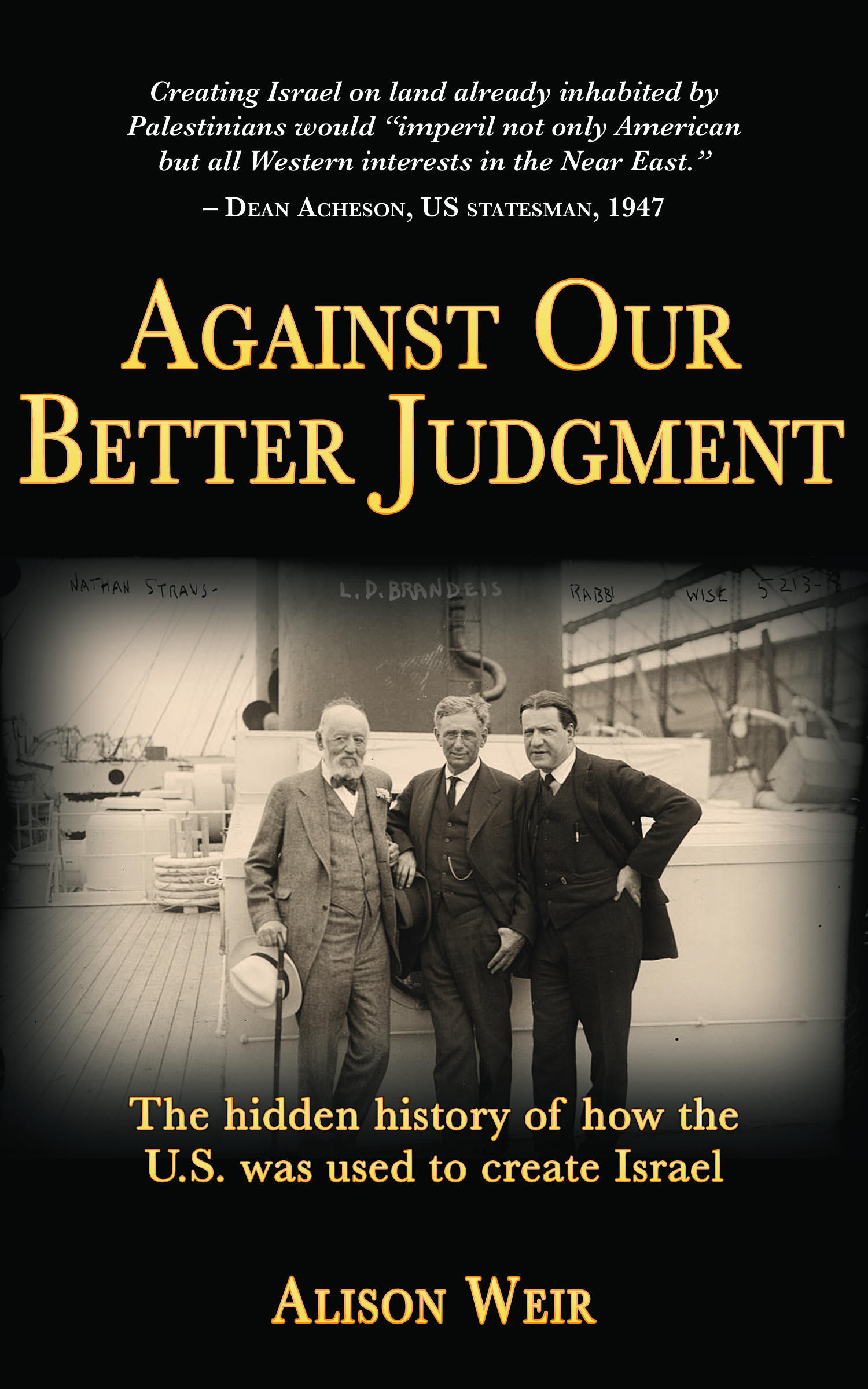
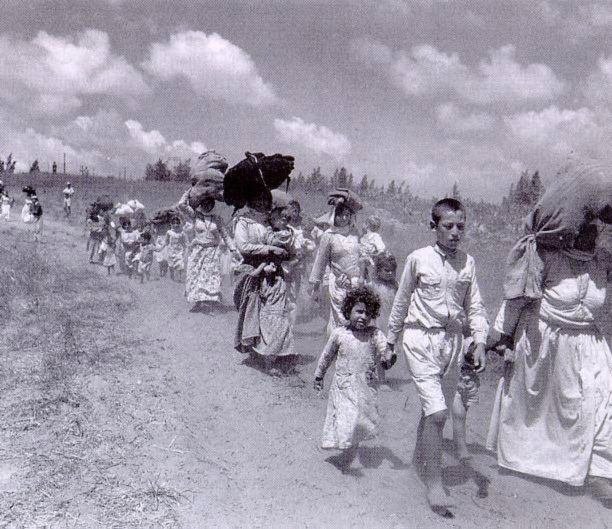
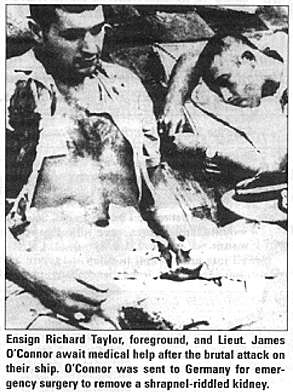 des
des 
